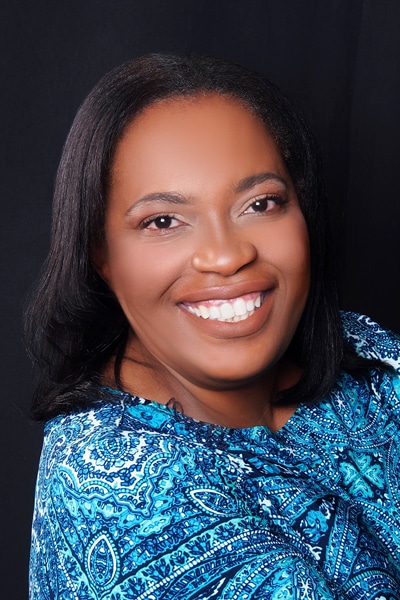Fifty-three percent of corporate executives say blockchain technology is a critical priority, with 40 percent planning to invest $5 million or more during the next twelve months on related initiatives, according to Deloitte’s 2019 Global Blockchain Survey. The survey also found that the financial services industry is leading the way in blockchain development, which is no surprise to Stephanie Gayden, a vice president and associate general counsel in the technology and IP group at Goldman Sachs.

“The blending of financial services and technology (aka fintech) is so exciting,” she says. “We’re currently seeing just the tip of the iceberg when it comes to unique tools that will be developed and implemented in the future.”
Gayden’s role puts her on the front lines of the 150-year-old global investment company’s digital transformation. “We’re looking at everything required to move transactions from paper to digital, which requires being current on all the latest and greatest technologies,” she explains.
Does that mean the attorneys on her team understand digital currencies and the technologies underpinning electronic financial transactions? “Well, we don’t have to be IT programmers or have that level of knowledge,” she explains, “but we do have to be good technicians when it comes to understanding the processes and being able to document them and ensure they are secure.”
Most experts say blockchain enables transactions to be decentralized, transparent, and immutable—all traits sought after by financial institutions and their customers. “It provides new levels of transparency and accountability,” Gayden confirms. It could also dramatically speed up the steps required for anti-money laundering (AML) and know your customer (KYC) procedures. As the Deloitte survey states, even leaders wary of tech-based solutions have come to see the transformational importance of blockchain technology.
In addition to blockchain, other new technologies Gayden’s team is studying include artificial intelligence (AI), cryptocurrency, and smart contracts. “Every new solution seems to have an AI component to it,” she says. “Over the past two years, we have begun to use a number of AI and natural language processing solutions to review and analyze contractual clauses and changes.” This puts them right in line with Gartner’s recent forecast indicating that AI augmentation will globally create $2.9 trillion worth of business value and save 6.2 billion man-hours in 2021.
To ensure they stay on top of developments, Gayden’s team hosts in-house presentations on new products and services and attends legal tech and cyber conferences. “We take every opportunity to learn about the latest cutting-edge stuff.” She says this is a change since her early days at Goldman Sachs. “Back then, we thought we had to do everything in-house. These days, we turn to third parties for the best-in-class tools.”
Her US team consists of fifteen people, located in New York and Dallas. “Many of our attorneys come from the country’s top tech-oriented law firms and companies. Combining their training and experience with our understanding of the financial industry enables us to provide the best service possible to further the company’s goals,” she says.
“Women-owned and minority businesses have historically been underserved by the funding ecosystem. We want to change that dynamic and widen the funnel of money going to these entrepreneurs.”
“We put a lot of effort into ensuring these attorneys fit comfortably into both the company and the legal department. We have video team meetings and what we call ‘teach-ins.’ I’ve also set up programs to ensure everyone on the team has opportunities to work across divisions and functions,” Gayden notes.
Mentorships also play an important role. “Each person on the team has a mentor in the legal department to help them navigate the company and make sure they are given lots of opportunities to grow,” she explains.
Along with new technologies, another initiative Gayden works on is Launch with GS, the company’s commitment to invest $500 million in women-led companies and investors. Since the program began in 2018, Goldman has invested $100 million in both women- and minority-owned businesses. “Women-owned and minority businesses have historically been underserved by the funding ecosystem,” Gayden explains. “We want to change that dynamic and widen the funnel of money going to these entrepreneurs.
“In addition to getting capital into their hands, our involvement enables them to tap into Goldman Sachs’ corporate and institutional relationships and helps them network with other business leaders to build important connections,” Gayden says. “We want to invest in the best ideas wherever they come from and to increase the pipeline of future investment opportunities. We believe it is important that the investing world reflect the real world of fifty-fifty gender diversity, and we want to do our part to help it get there.”
Perkins Coie LLP:
“Working with Stephanie is always a privilege. Her depth of experience informs her handling of the most complex matters. Efficient, pragmatic and passionate about her work, she keeps her focus on the underlying business issues in any transaction.”
—Richard T. Ross, Partner

